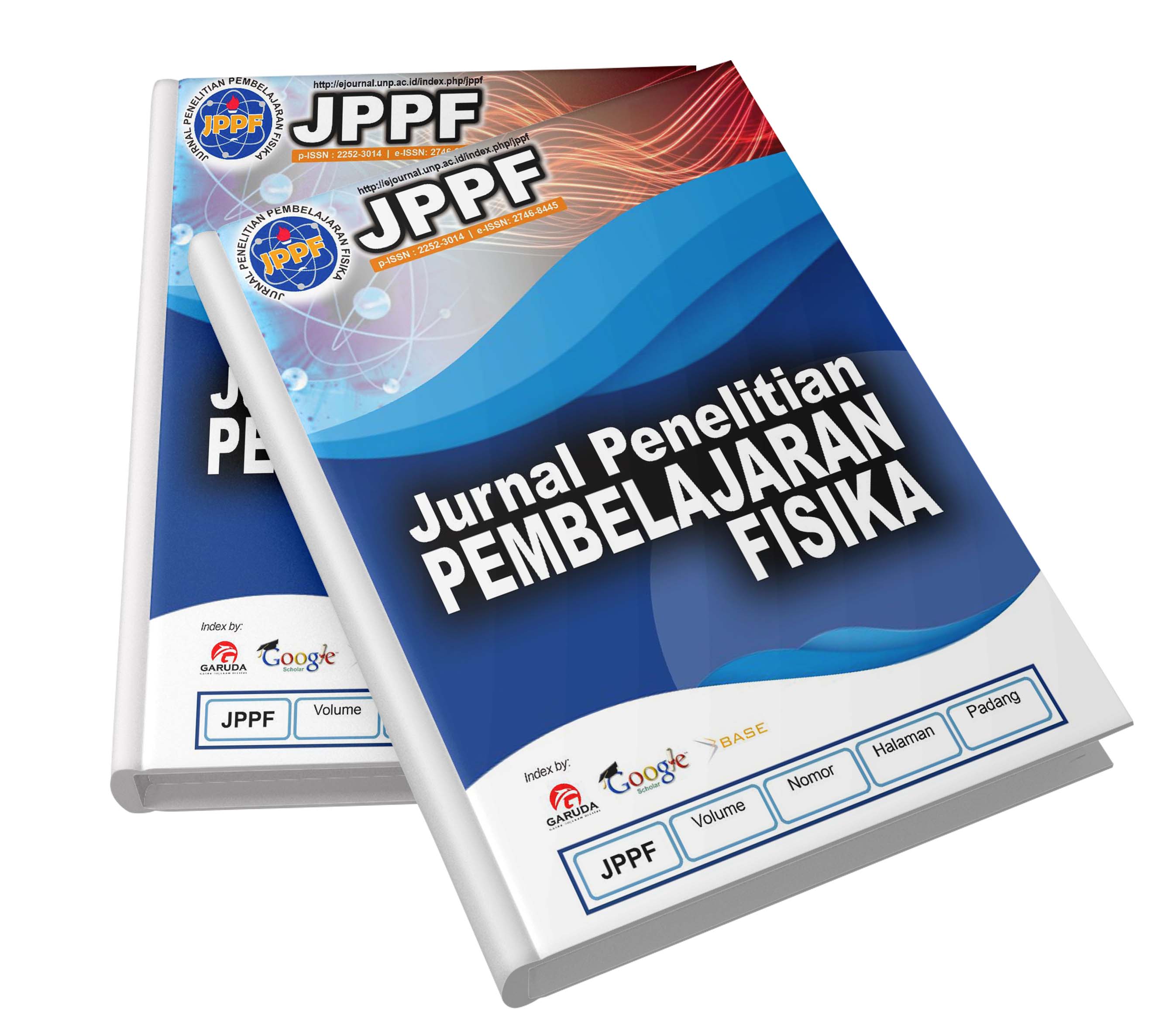Editorial Policies
Focus and Scope
JPPF focuses on publishing the scientific articles in the fields of learning Physics and learning science. Scientific articles in learning Physics and learning science are written from the results of research activities including experimental research, descriptive research, correlation research, classroom action research, research and development, literature review, meta-analysis, and relevant research methods. The scope of scientific articles includes learning planning such as learning materials, learning media, and experimental tools; implementation of learning such as learning models, learning approaches, learning strategies, and learning methods; learning assessments such as authentic assessments and assessment based on ICT; learning management and policy; and the current developments in physics learning and science learning.
Section Policies
Articles
 Open Submissions
Open Submissions Indexed
Indexed Peer Reviewed
Peer Reviewed
Open Access Policy
This journal provides immediate open access to its content on the principle that making research freely available to the public supports a greater global exchange of knowledge.
Publication Ethics
Publication Ethic Statement
Ethical standards for publication exist to ensure high-quality scientific publications, public trust in scientific findings, and that people receive credit for their ideas. Important issues to avoid in scientific publications are as follows:
1. | Data Fabrication and Falsification Data fabrication means the researcher did not actually do the study, but faked the data. Data falsification means the researcher did the experiment, but then changed some of the data.
|
2. | Plagiarism Taking the ideas and work of other scientists without giving them credit is unfair and dishonest. Copying even one sentence from someone else’s manuscript, or even one of your own that has previously been published, without proper citation is considered plagiarism—use your own words instead. |
3. | Multiple Submissions It is unethical to submit the same manuscript to more than one journal at the same time. Doing this wastes the time of editors and peer reviewers, and can damage the reputation of the authors and the journals if published in more than one journal as the later publication will have to be retracted. |
4. | Redundant Publications (Salami Publications) This means publishing many very similar manuscripts based on the same experiment. Combining your results into one very robust paper is more likely to be of interest to a selective journal. Editors are likely to reject a weak paper that they suspect is a result of salami slicing. |
5. | Disclosure and Conflict of Interest Privileged information or ideas obtained through peer review must be kept confidential and not used for personal advantage. Reviewers should not consider manuscripts in which they have conflicts of interest resulting from competitive, collaborative, or other relationships or connections with any of the authors, companies, or institutions connected to the papers. |
6. | Improper Author Contribution or Attribution All listed authors must have made a significant scientific contribution to the research in the manuscript and approved all its claims. Don’t forget to list everyone who made a significant scientific contribution, including students and laboratory technicians. Do not “gift” authorship to those who did not contribute to the paper. JPPF Editors has detailed guidelines on authorship that are useful for scientists in all fields: Physics Learning Research Journal. |



